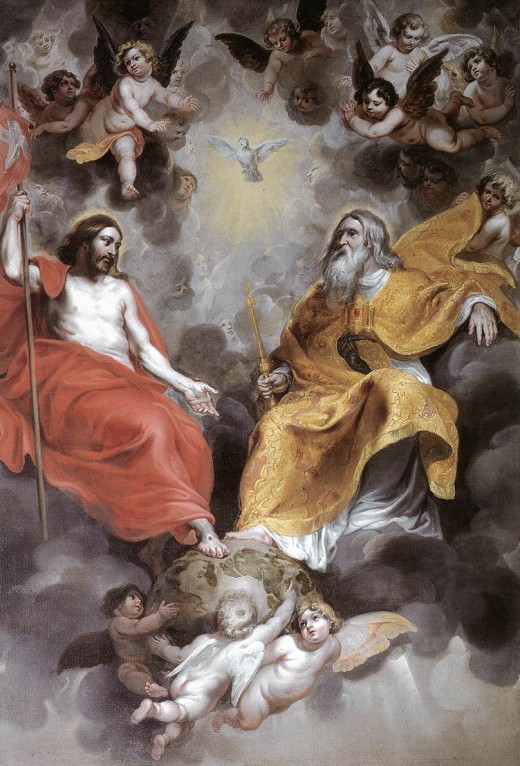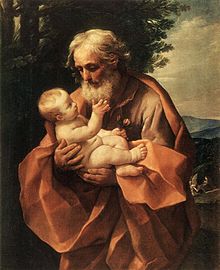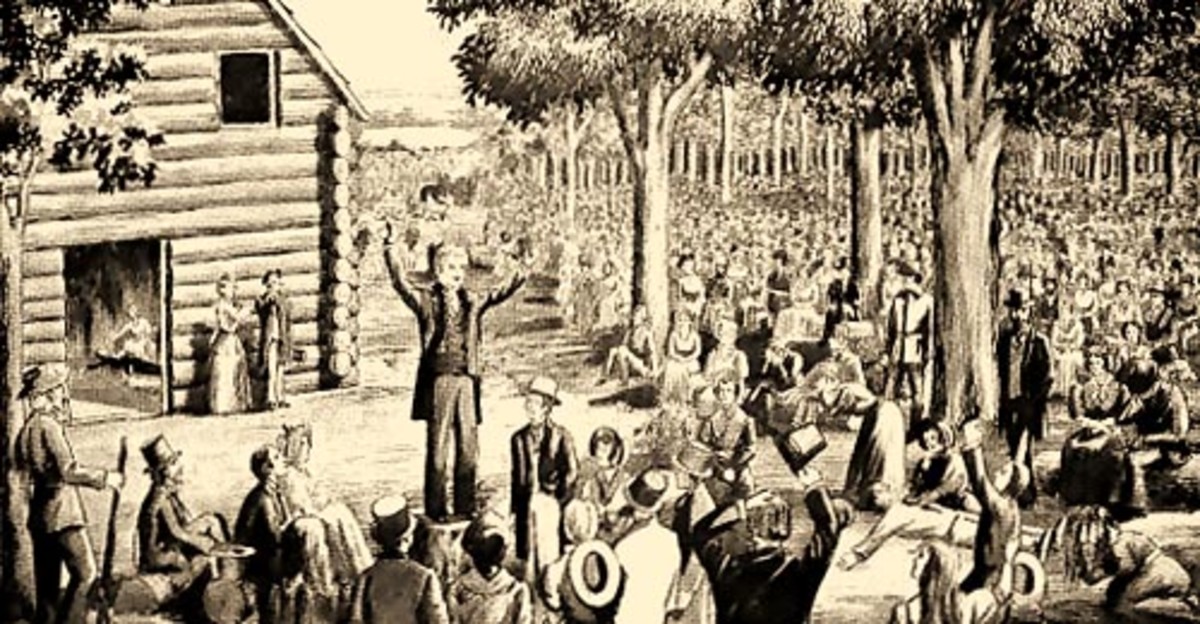Regular, Normal Christianity ~ The Covenant, The Promise, The Covenants, And The Gospel

This is the sixth entry in my series of "Regular, Normal Christianity" articles. After first setting forth my intent, and disclaimers (that I am sharing my own understanding and not asserting that I am THE arbiter of what ought to be counted as authentic Christianity), in the initial and hub "Regular, Normal Christianity ~ The Premise And Definitions", we proceeded to consider the basic, essential ideas of historic, Biblical Christianity.
We began our examination of regular, normal Christianity by presenting the first article, on the reliability of "The Bible", followed by an article on the very idea of "God", then the person and work of "Jesus of Nazareth", then concept of "The Trinity", and then we looked at the Christian teaching on "Man, Sin, And Spiritual Death". With this article we look at "The Covenant, The Promise, The Covenants, And The Gospel" . . . what might reasonably be called, the Christian message.
After we cover these foundational ideas of what historic, Biblical Christianity sets forth as the truth, we will then begin to examine some of contemporary American Christendom's teaching and practices in light of what regular, normal Christianity, Christianity that generations have always understood the Bible to present as Christianity, proclaims as God's own revealed truth.
Please see the bottom of this page for a list and links to the previous and subsequent articles.


"For when God made a promise to Abraham, since He had no one greater by whom to swear, He swore by Himself"
The Covenant
In our previous article, "Man, Sin, And Spiritual Death", we concluded that Christianity teaches that man is spiritually dead, that our relationship with God, the eternal spirit who created us, has been broken by our rebellion . . . we ended that article with this - "We no longer walk with God in the garden, instead we fashion our own notions of who God is and how we can appease Him. We concoct elaborate religions with rules and rituals that we imagine make us acceptable to God".
That is an excruciatingly abysmal condition to discover yourself to be in - but before man's rebellion, even before man's creation, God entered into a covenant with Himself to redeem men. Those two words, "covenant" and "redeem", have become theological terms not often used in common conversation - but they are words that were common and understood by the people they were originally addressed to. "Covenant" was essentially a promise or a contract . . . it was an if-you-do-'this'-I-will-do-'thus' agreement between parties. "Redeem" or "redemption" might bring to mind shopping for some, as in using a coupon at the checkout. The manufacturer has promised (covenanted with) the retailer that if the store sells you 'this' $2 item for only $1, he (the manufacturer) will reimburse the shopkeeper the other $1 - when you use the coupon you are redeeming that $1 promise getting a $2 item at half the price.
The redemption Christian theology refers to is the redemption of men, and that plan of redemption is based on an eternal covenant, or promise. And here is where many seem to miss a central idea that informs all of Biblical teaching yet to come. So much of the struggle that some have, complaining that the Bible contradicts itself, establishing complex 'dispensations' where God saves some men by works and than others by faith, and just never really grasping the antagonism between the concepts of law and grace (we will examine this more directly in the next article in the series, "The Atonement - Law & Grace"), etc, starts with this simple but too often missed Scripture truth - "For when God made a promise to Abraham, since He had no one greater by whom to swear, He swore by Himself". A covenant is between two or more parties, and they must, understandably, be two like or equally competent parties . . . an adult man can't reasonably make a deal with a child to each unload half a truck, or neither can I enter into a contract with the squirrels in my backyard that I will leave their house alone if they will leave mine alone - in these cases the child can't perform the task and the squirrels can't comprehend the agreement.
So, God entered into a covenant, not with man (who could not perform the task or even comprehend the agreement) but with Himself; in the eternal covenant of redemption God the Father promised Jesus the Son that if He lived a perfect life of love and gave Himself as man's substitute, stood in man's condemned place, that He would accept Jesus' sacrifice and redeem men on the merits of Jesus' life and death - and God the Son promised the Father that if He would accept His sacrifice and redeem men, He would give all those who the Father accepts and counts to be as perfect as Jesus Himself to the Father to be His adopted children.
The eternal covenant of redemption is not that God will save you if you do 'whatever' - the eternal covenant of redemption is that God will save us if Jesus does what He covenanted to do . . . we are simply the beneficiaries of the covenant, not either of the principle parties - that's why salvation is called a free gift. That's why Jesus said "It is finished" - there is nothing that we can do, Jesus did it all.

In the garden God promises that from the decendants of Adam and Eve one will come who will defeat Satan and restore the relationship between God and men
The Promise
Where so many seem to get confused on this matter is when God announces to men the promise and the hope of the covenant, and when He puts into order the practices and rituals that celebrate and remind us of the covenant . . . we seem to think God is regularly making new and different covenants all the time, when He is rather declaring and advancing His eternal covenant of redemption. This announcing of the covenant starts immediately upon man's rebellion and fall, when in the garden God promises that from the descendants of Adam and Eve one will come who will defeat Satan and restore the relationship between God and men.
And then God does something, and starts a pattern, that many either just don't understand or recoil from - God slaughters a beast, an animal that didn't do anything wrong at all, and uses the pelt to cover Adam and Eve. This sets into motion a long history of animal sacrifices . . . eventually covenants between men, legal contracts, are made binding through the shedding of blood - the worship of God is only recognized as true worship if there is a shedding of blood, innocent blood. The Old Testament temple practices were elaborately detailed in Scripture, what animals were to be used, how the animal was to be killed, what tools were used, etc. And then, eventually, God corrects the false assumption of many declaring that these animal sacrifices do not find favor with Him at all - they are all shadows, types, picture reminders, reminders of the promise of one yet to come whose sacrifice He is covenanted to accept.

All the Old Testament, the law and the prophets, all point to Jesus, the promised Savior, as our only hope
The Covenants
From the time the promise is announced in Genesis until the coming of the promised one in Matthew, God is reminding us of the promise and displaying for us it's purpose and workings . . . that means the entire Old Testament, with all it's sacrifices and prophets and rituals, etc is all setting forth the truth of the coming of the promised one, it is preparing the way, it is our schoolmaster bringing us to the Christ. And that's just what Jesus, Paul, and all the New testament says that it is. God was never satisfied with the blood of bulls and sheep, keeping the 10 Commandments was never a path to heaven, circumcision never saved anybody, etc. And again, this is where so many will cry that the Bible contradicts itself; that 'here' it says you must sacrifice a sheep while 'there' it says that doesn't save, 'here' it says you mustn't eat shrimp but 'there' it says you can eat anything, 'here' it says to circumcise but 'there' it says circumcision avails you nothing.
The mistake many make is to not see the whole and then look at the parts, but instead looking at the parts and missing the whole . . . it's really quite simple, sheep blood, shrimp, and circumcision were never given or meant to save - they were given and meant to point toward the Savior, they were shadows, types, picture reminders of the promise. Here is where many take their first misstep in understanding the Bible; Christian doctrine has utilized the terms 'covenant of works' and 'covenant of grace' to distinguish between the idea of doing something that earns you God's favor and salvation, and the idea that you can do nothing to earn God's favor and that salvation is a gift.
But here is what is so often misunderstood; the 'covenant of works' does not reference the law under Moses, it's not about us working our way to heaven through obedience - the 'covenant of works' was made with Adam in the garden, it was an agreement with condition of obedience . . . basically 'I have given you all this abundance and I walk with you in the garden, only, do not eat of the tree of the knowledge of good and evil'. When Adam broke the 'covenant of works', God established a new covenant, the 'covenant of grace' . . . still in the garden God promised a Savior to come and give men spiritual life restoring them to fellowship with Him. The law of Moses is not a covenant of works, no one is or ever was saved by keeping the law, no one can keep the law - the law of moses is part of God's covenant of grace, it convicts us of sin and brings us to Jesus for forgiveness and eternal life. The covenant of works was between God and Adam in the garden, and that covenant was broken - the covenant of grace is everything that follows, all the Old Testament, the law and the prophets, all point to Jesus, the promised Savior, as our only hope.
This was exactly the mistake the pharisees in Jesus' day were blinded by . . . all through the gospel accounts of Jesus' ministry it's the men who are the most religious who find fault with Jesus' teaching. I intentionally titled this article, the perhaps a bit confusing, "The Covenant, The Promise, The Covenants, And The Gospel" . . . this is where people stumble, failing to recognize there is an eternal covenant within the Trinity and that eternal covenant is then announced and portrayed by the various covenants God establishes with men throughout the Old Testament. The pharisees of Jesus' day were regularly accusing Him of teaching the people to break the covenant rules they were teaching needed to be obeyed . . . they again and again rejected His message and defended their own teaching by declaring "We are the children of Abraham".
However, when they would promote themselves and condemn Jesus by referring to Abraham and Moses and the law and the prophets, etc, Jesus would denounce them saying "The Father who sent me has himself borne witness about me. His voice you have never heard, his form you have never seen, and you do not have his word abiding in you, for you do not believe the one whom he has sent. You search the Scriptures because you think that in them you have eternal life; and it is they that bear witness about me". God established covenants with men, not as a means for men to save themselves through obedience to the covenant (or, contract), but as reminders, as acted-out through ritual, picture reminders of the promise . . . the promise that God would send a Savior to redeem for Himself a people.

The gospel message is that in the fullness of time, Jesus, the promised one, came.
The Gospel
All of this, the eternal covenant God made to redeem men, the promise that a Savior would come, the covenants with men, all manifest in the gospel message, the message that salvation is by grace and not by works (we will look at this more specifically and thoroughly when we examine
"The Atonement - Law & Grace" in the next article in this series). Christianity is the only religious teaching, the only spiritual path, the only way to God, etc, that teaches that there is nothing you can do to win God's favor, that you are without hope, that you are spiritually dead. The gospel message is that you are dead already and stand condemned and there is nothing you can do about it.
Of course, we don't like that message . . . we want to hear the doctor say that we are cancer free and going to live for many more years - we don't want to hear that we are dying. It would make us feel good if the doctor told us we could cure our cancer by following certain rules, like, don't eat corn anymore, get rid of the cat, and always wear something blue . . . if we do those things we will be cured of cancer. But when he tells us that none of that will have any effect at all and our cancer is going to kill us, that is not what we want to hear. But, as much as we don't like the doctor's message that we are dying and there is nothing we can do about, we need to hear that message if there is a cure that he can give us that can save us.
We are religious people, atheists are religious people - we like the notion that we can participate in an order and process to things that provides us the results we desire . . . some people light candles and some dig for bones, some follow a rigid ritual regime and some imagine that whatever they dream-up in their heart is God. Man likes to feel the ground under his feet, we like to know that if we do 'this' it will result in 'that' . . . if we want something done right we think, feel, and argue that we have to do it ourselves.
The Bible's message, Jesus' message, Christianity's message is that you are in rebellion against God, you are dead and dying and there is nothing you can do about - but God has covenanted with Himself and promised that He would provide us a Savior. No one in the Old Testament was ever saved by obeying the law or sacrificing sheep, etc - they were saved by grace through faith just as we are . . . they looked ahead trusting in the promised Savior and we look back trusting in the promised Savior. The message is there all through the Old Testament, neither Jesus or Paul concocted some new religion, the trouble is our spiritual death and religiosity blinds us to the grace that is there - we just want to do but God is telling us it's already done..
Look at Abraham; the covenant that God made establishing the Jewish people was the covenant He made with Abraham. He entered into a contract - but look at it, there's no agreement that if Abraham does his part God will do His, God simply announces what He is going to do, saying "I will make of you a great nation, and I will bless you and make your name great, so that you will be a blessing. I will bless those who bless you, and him who dishonors you I will curse, and in you all the families of the earth shall be blessed." . . . there's no 'if you', or 'you must', etc, but rather "I will", "I will", "I will", etc. And there's no keeping of the law here, the promise to Abraham was made 400 years before the law was even given.
This is why Jesus said that if we trust in Him as our only hope, if we put no confidence in what we can do but turn to Him believing that redemption is His work and that He has accomplished our salvation and freely gives it to us, then we are the true children of Abraham. The gospel message is that we are spiritually dead and stand condemned and there is nothing we can do about - but God has determined to save for Himself a people and gives salvation freely to any and all who trust, not in themselves and the concocted religious schemes of men or their own notions of God inside of them, but trust in Jesus and His finished work alone as their only hope.
The gospel message is really almost a news story, it's a report on the fulfillment of the promise . . . it's not about what church you go to, how you pray, if you're doing every religious ritual just right, etc - the gospel message is really that God promised a Savior would come and He did. After generations of preparation, after all the types and figures and stories and reminders that a savior would come, Jesus of Nazareth came and accomplished the salvation of His people. That is why the Bible calls the time of Jesus' incarnation "the fullness of time" . . . it is the reason for everything, the reason for time itself. God created space and time and put this world into it so that He could make men and take upon Himself their very nature and put His own divine Spirit within them adopting them as His own; and the gospel message is that in the fullness of time, Jesus, the promised one, came.


Preface. "Regular, Normal Christianity ~ The Premise And Definitions"
1. Regular, Normal Christianity ~ "The Bible"
2. Regular, Normal Christianity ~ "God"
3. Regular, Normal Christianity ~"Jesus of Nazareth"
4. Regular, Normal Christianity ~ "The Trinity"
5. Regular, Normal Christianity ~ "Man, Sin, And Spiritual Death"
6. Regular, Normal Christianity ~ "The Covenant, The Promise, The Covenants, And The Gospel"
7. Regular, Normal Christianity ~ "The Atonement - Law & Grace"
The Christian & Private Study - A 'How To' Guide
-
'How To Study The Bible'
-
'The Christian Library'
-
'Christian Life Lessons'
"Is Believing In God A Ridiculous Thing?"
"The Most Married Man In America"
please share your comments below ~


Next ~ we will continue, in an orderly manner, examining the the atonement, law and grace, the church, etc, etc . . . once we cover these essential Christian teachings from an orthodox historic and Biblical perspective, we will examine some of the specific ideas popular contemporary American Christendom advances.
please share your comments below ~


"Warm affections, without knowledge, can rise no higher than superstition; and that knowledge which does not influence the heart and affection, will only make a hypocrite"
~ John Newton

Please do visit my other hubs ~
The Saturday Matinée
"A Preview"
1. "Mysterious Island"
2. "Horror Of Dracula"
3. "This Island Earth"
LOGISMOS
1. "The Seasons"
2. "Why Do We Write?"
General Fussing About ~
1. "Vampires"
2. (coming soon)
Miscellaneous
"The Best Halloween Movie"
"Do I believe in love at first sight? Yes - sort of . . ."
"Leonard - The Best Dog Ever"









